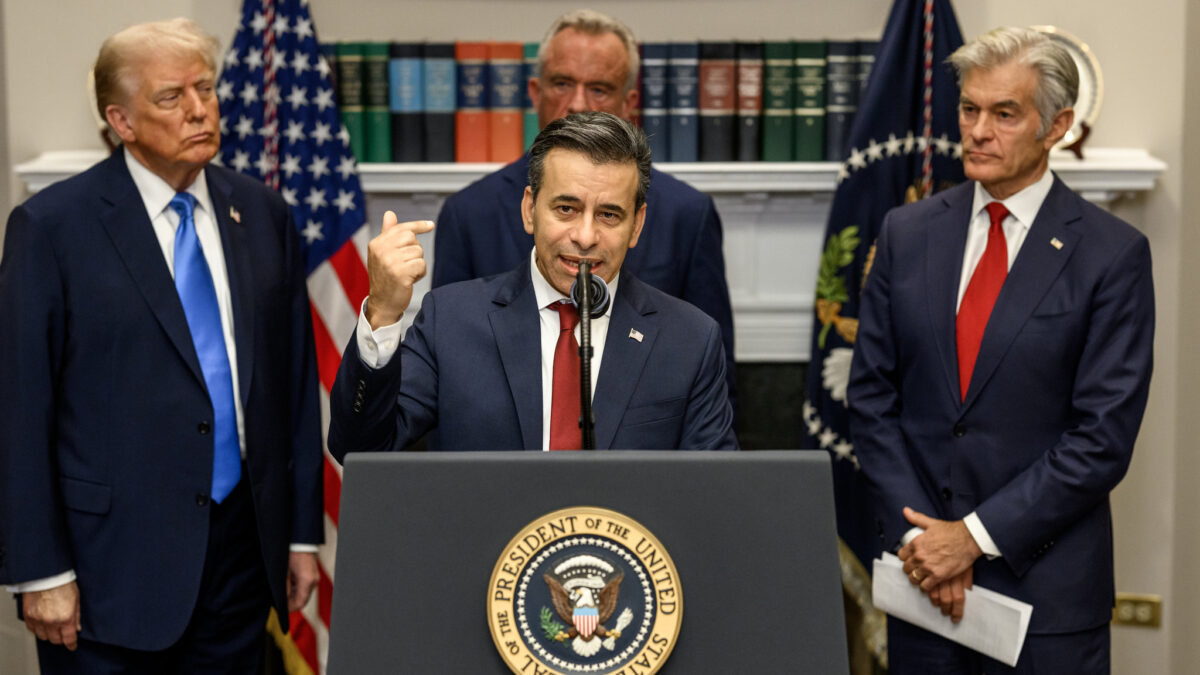
One of the perennial volleys launched against the pro-life movement is the charge of inconsistency: if pro-lifers were really pro-life then they would seek the welfare of children after birth, as well. But since they don’t, evidenced by their resistance to government programs intended to help children, their opposition to abortion must be motivated by an ulterior motive.
This is an old argument, but it resurfaces again, and again, and again. Does it have merit?
Let’s Break it Down
Although the argument takes different specific forms, it tends to have the following structure.
Argument one:
- Pro-lifers say they want to protect unborn children because they believe the unborn have inherent value.
- Children continue to have inherent value after birth.
- Therefore, pro-lifers must show the same commitment to protecting children who are born as they do to children who are unborn.
This conclusion usually then becomes a premise in a subsequent argument, argument two:
- Pro-lifers must show the same commitment to protecting children who are born as they do to children who are unborn (or “children” in general).
- The best way to demonstrate a commitment to protecting children is to support government programs that seek to protect children.
- Therefore, pro-lifers should be committed to supporting all government programs that seek to protect children.
Does Pro-Life Equal Pro-Government?
On its face, this sounds like a potentially damning indictment of pro-lifers who disagree with progressive conceptions of government. If children who are already born really do have the same value as the unborn and thus deserve the same protection, shouldn’t pro-lifers support creating a state that ensures the welfare of all children?
First, much of this line of attack, independent of its cogency, is disingenuous. As Democrats debate whether a commitment to unrestricted abortion up until the moment of birth should be a litmus test for party membership (recall that Democratic Sen. Barbara Boxer infamously suggested the baby’s right to life only begins when she crosses the threshold of her new home), it is clear that most pro-choicers believe that the right to terminate a pregnancy must be preserved independently of any other policy considerations. The “pro-lifers are hypocrites argument” is thus meant to embarrass, not to signal an openness to compromise.
But what about the argument linking the pro-life position to the welfare state itself? Here are four interrelated reasons why it is problematic.
1. The Arguments Use Two Different Meanings of ‘Protect’
You would be hard-pressed to find a pro-lifer who denies the soundness of the first argument, which affirms the value of all children and establishes the justification for protection. But “protect” is being used in a different way in argument one than in argument two: protect in in the first argument means “to save the life of”; in the second it means “to ensure the welfare of.”
Imagine this scenario to illustrate the difference. While walking near a river one morning, you see someone dangling a newborn infant off a bridge. Obeying your natural impulse to preserve life, you shout “No! Stop!” only to be met with this reply: “It is hypocritical for you to tell me it’s wrong to throw this baby off the bridge unless you commit to take care of her until she is a legal adult.” In an act of moral desperation, you accede, but while carrying the baby back to safety you begin to wonder about the dangler’s reasoning: Does saving a life rationally entail being committed to taking responsibility for that life’s ongoing welfare?
There are very good reasons to promote the welfare of all children, but “preventing death” and “ensuring welfare” are two different things and thus correspond with different kinds of individual and social responsibilities. Indeed, conflating the two meanings of “protect” under the same obligation ultimately amounts to a form of moral extortion: Unless you are willing to pay for the child until adulthood, pro-lifer, I swear she won’t make it past birth.
2. Negative and Positive Rights Aren’t the Same Thing
This double meaning of “protect” points to a related problem with argument two. The right to life in relation to abortion is a negative right. To respect the unborn life’s right to be born, one is only committed not to seek her intentional destruction. A right to welfare, on the other hand, fits within the definition of a positive right: respecting the right requires individuals or institutions to perform specific actions, like providing nutrition, shelter, clothing, and the like to the child after birth.
To be sure, the line between negative and positive rights can be ambiguous. At a minimum, respecting the right to life would require enforcement (and no, it wouldn’t entail jail for those who have abortions), which requires action. Also, pro-life advocates would claim that all necessary medical attention should be given to the unborn child, just as it should be given to the mother. This, too, of course, entails action.
But this very relevant difference still holds: a right to life primarily (if not exclusively) pertains to the actions of the mother, father, and doctor—to those directly responsible for ensuring the child is born. All things being equal (if there is no attempt to abort the child and no medical issues) preserving the life of the child requires no action beyond the mother choosing to remain in good health during the pregnancy, to the extent that is possible, and medical professionals aiding during the delivery.
A right to welfare, in contrast, not only necessarily implies performing ongoing actions to ensure the child’s welfare, it implies that everyone is responsible for performing those actions, at least indirectly.
The problem with conflating an obligation to protect unborn life and an obligation to provide welfare is that they imply two very different kinds of rights with two very different kinds of attached responsibilities. Put most starkly, a “right to welfare” validates a stranger being able to knock on your door and declare: “My child has a right to everything necessary to his wellbeing—and you, and everyone else, have the responsibility to provide for it.” Acting as if this position were the obvious implication of supporting a right for every child to be born is also disingenuous.
3. Data Suggests the Nanny State Is Not the Best Caretaker
Another problem with linking the pro-life position to support for the welfare state is that it makes an empirical claim that government policies are the best way to ensure child welfare. Is that true?
To answer yes, one would have to establish a very strong causal connection between government policies and measurable improvements in child welfare. However, establishing that connection can be challenging, as we see, for example, in the debate on whether to provide taxpayer-funded universal access to preschool. There is deeply mixed empirical evidence about whether such access provides any significant, long-lasting benefit for vulnerable children. This is the case with many other welfare programs, as well.
In short, just because a government program aims to improve children’s welfare does not mean that it will, so it is also disingenuous to claim that opposing specific government programs is either inconsistent with being pro-life or prima facie evidence that one does not care about children’s welfare.
4. Life Is More Fundamental Than Welfare
Pro-lifers affirm that preventing the destruction of unborn children is the foundational value from which all other values are derived. Without attributing absolute value to life, in other words, all other values—including the freedom of choice—are moot because all other values presuppose life itself.
In practice this distinction entails that a pro-lifer can coherently claim that a right to life is an absolute value that must never be violated, while maintaining some specific aspects of a child’s welfare may be weighed against competing values. Think, for example, of parents who allow their children to eat junk food without restriction. Such action poses a direct threat to the children’s wellbeing. But should the government have the power to enter their homes and confiscate their unapproved foods? Or consider parents who let their children watch violent materials or play violent video games at young ages. Also not good for them. But, again, is this a matter for state intervention?
In short, while the state is clearly justified in intervening in areas of child welfare that pertain to bodily and basic psychological integrity, many other kinds of “welfare” should generate serious debate about whether the state should get involved at all. It is not inconsistent to want to protect the lives of all unborn children while recognizing that values like freedom, autonomy, and individual conscience should limit what the state can and should do on behalf of children’s welfare.
Save the Children? Or Save the State?
None of this, in the end, limits the personal obligations pro-lifers have to seek the welfare of all children to the extent they can (perhaps this extraordinary man best illustrates the full meaning of what that can look like) and there is no reason that pro-lifers cannot support specific, discrete policies that demonstrably benefit children, especially vulnerable children, and mothers and families more generally.
However, there is ultimately a deeper reason pro-lifers question the soundness of the second argument. Lurking behind the Left’s concern for “children” often lies a base ideological belief that the state is existentially and morally more fundamental than the individual, and, by extension, the families that individuals form. Partisan ads, like this classic, “The Life of Julia” (the original has been removed from Barack Obama’s official website), unmask this belief in touting citizen dependency on government for many major life events from early childhood until old age. So does this infamous political ad celebrating how citizens “belong” to the government, or this former MSNBC promo suggesting that children are communal property.
In contrast, pro-lifers’ most foundational moral presupposition is that every human life has inherent value and, as such, does not belong to any state. Granting the government expansive authority over children’s welfare, as the government defines it, risks violating this constitutive barrier between the state and its people, a barrier that, once removed, provides the philosophical and logistical grounds for the state to appoint itself as the arbiter of both welfare and life—something that eventually ends up threatening both.
So call pro-lifers wrong for believing in the inherent value of human life, if you like. But don’t call them inconsistent for being profoundly cautious of giving government the power to care for it.









